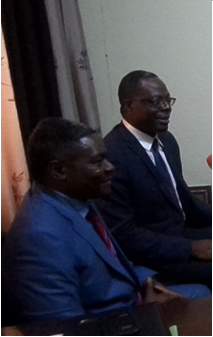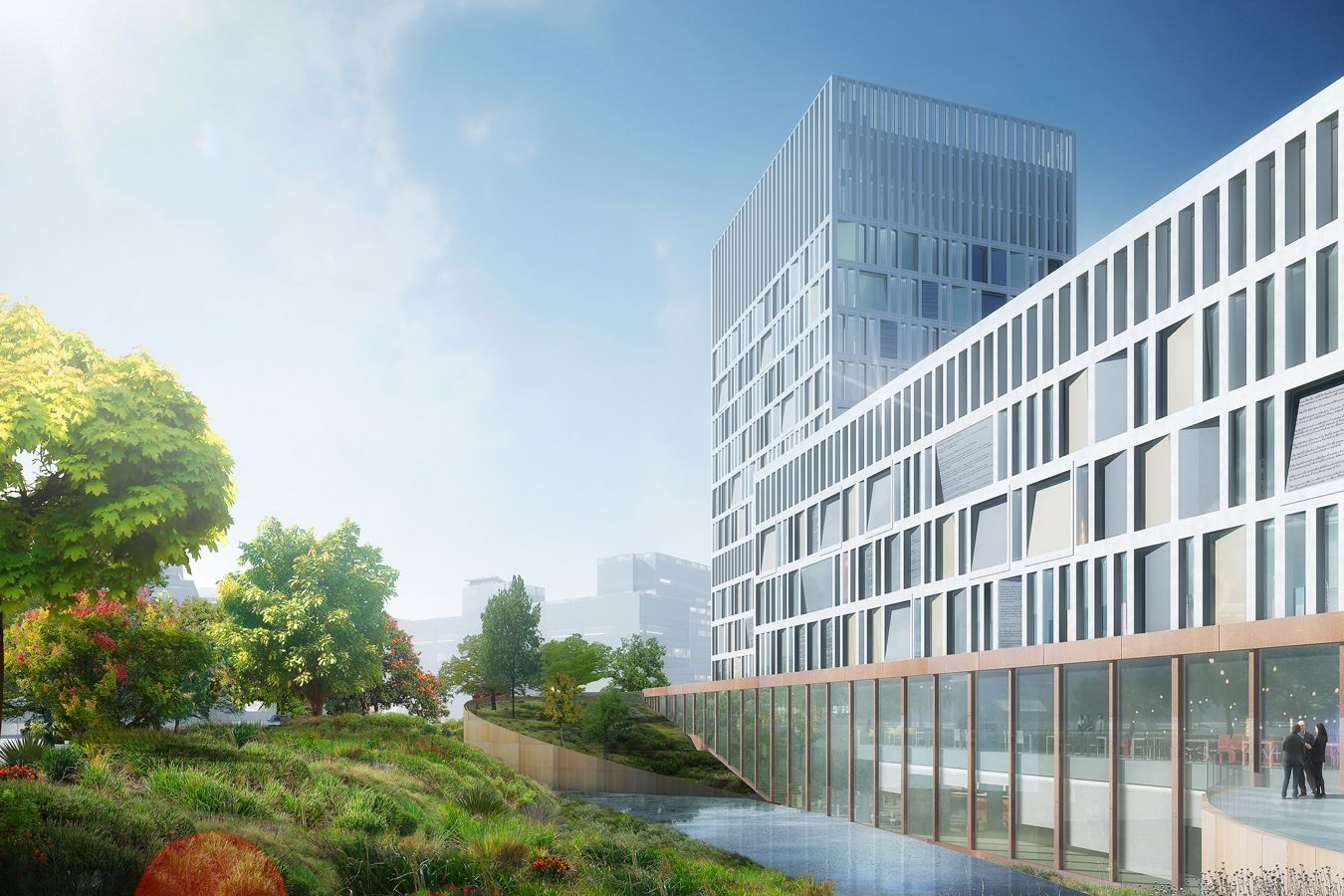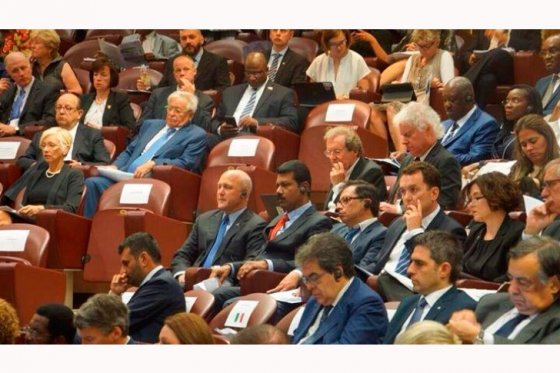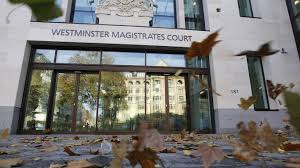Sidebar
News
From 21 to 27 January 2016, the confirmation of charges hearing in the Dominic Ongwen case was held at the International Criminal Court (ICC). It is an important case for many reasons, one of which is this post’s subject: the case includes a high number of sexual and gender-based violence (SGBV) charges, which, if confirmed, would be the broadest range of such crimes ever to come to trial at the ICC. It would certainly illustrate that the positive trend in this respect that started with the Ntaganda case continues, and would consolidate important case law on these crimes.
COMMUNIQUE DE PRESSE
Les militants abolitionnistes de la peine de mort en République Démocratique du Congo, regroupés au sein de la coalition d’Afrique Centrale contre la peine de mort, ont commémoré ce 7 janvier 2016 à Kinshasa le 13ème anniversaire de la dernière exécution de la peine de mort. Un point de presse pour marquer cet important évènement a été fait à cette occasion par Maitre Liévin NGONDJI, président de l’ONG Culture pour la Paix et la Justice, CPJ en sigle et Mr Baudouin KIPAKA BASILIMU, secrétaire exécutif du Réseau des associations et militants abolitionnistes de la peine de mort en RDC, le RADHOMA en sigle.
More than 100 lawyers and human rights defenders and their relatives have been detained or questioned as Chinese authorities carried out an unprecedented nationwide crackdown on human rights activists over the weekend.
As of July 14 at 7:30pm in Hong Kong, the total number of people who have been summoned, questioned, arrested, or detained had reached 159 across 24 cities and provinces, according to the China Human Rights Lawyers Concern Group. Of those, 10 are still detained by authorities, the whereabouts of 14 are unknown, and 135 have been released, said the Hong Kong-based advocacy group.
We attach the interview with Jordi Palou-Loverdos, a member of BPI-ICB ICB published in the Diari Ara.
Jordi Palou-Loverdos: "The UN has sought to judge and condemn the losers"
Defense lawyer for eight Spanish families victims of violence in Rwanda.
Barcelona lawyer Jordi Palou-Loverdos trying for years to families victims killed in the savage violence Rwandan find and receive justice, but as crimes committed in 1997 and 2000 have had no place in the jurisdiction of International Criminal Tribunal for Rwanda, and legislative change in Spain makes it difficult moment can prosecute those responsible, quoting the principles of international justice.
1945-1949 CE 1945-1949 CE
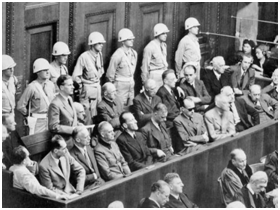
Although the legitimacy of the Tribunal was compromised from the outset in the absence of similar precedents in the history of universal prosecution, the work done for the definition of the crimes (also until then unusual in its magnitude) and procedures for development They serve the cause forward for the establishment of international justice.
Thus, concepts of crimes previously absent or vaguely defined as a crime against humanity, evoked in The Hague Convention of 1907. materialize. He also was modified the traditional approach to the rules of international law that focused on the relations between states, but not in the rights and duties of individuals. Since then, the crimes committed by individuals of a nation across several countries could be judged internationally by all affected countries, as it was in the formation of the Nuremberg Tribunal.
In the Nuremberg trials, the Allied powers prosecuted Nazi leaders for war crimes and crimes against humanity. It is the first criminal trial in history to try crimes committed by people in wartime.
November 20, 1945
Start the fundamental process against the main culprits and captured a number of key organizations accused of crimes against peace, war crimes and crimes against humanity led by the International Military Tribunal whose livelihood was the London Charter against 24 main surviving leaders of the Nazi government.
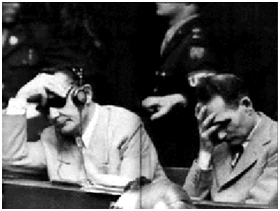
February 13, 1946
The United Nations General Assembly through Resolution (3) recognized as of the following offenses: crimes against peace, war crimes and crimes against humanity as contained in the Charter of the International Military Tribunal at Nuremberg.
December 11, 1946
With the adoption of Resolution (95) confirming the principles of international law recognized in the Charter of the Nuremberg Court and judgments of the Court.
(ECOSOC) United Nations Economic and Social Council, to investigate cultural and social issues, established the Commission on Human Rights and initial aim of the commission was the elaboration of an international declaration, defining human rights.
Following the Nuremberg trials, an international conference in Paris to establish an international criminal code. In this meeting, the International Criminal Court is born.
November 21, 1947
By Resolution (177) was adopted created an Ad Hoc Committee to formulate the principles of international law.
Resolutions (3), (95) and (177) were used for the constitution of the ad hoc tribunals for the prosecution of crimes committed in the former Yugoslavia and Rwanda later to the creation of the Permanent International Criminal Court.
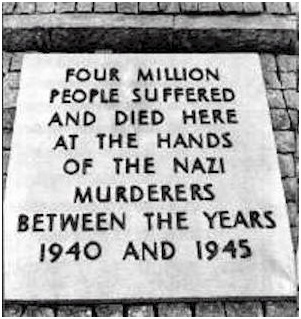
In the year 1948
ILO adopts Convention on Freedom of Association and Protection of the Right to Organize.
The Organization of American States adopted the Declaration of the Rights of Man.
UN adopts the Genocide Convention on 9 December.
The next day, December 10 The UN General Assembly adopted the Universal Declaration of Human Rights (the international articulation of primary and inalienable fundamental rights of all human beings and the first global agreement among nations about the specific rights and freedom of all human beings), the first step in the future development of the Charter of Human Rights for the elaboration of which elapse another 18 years.
Add a comment
Interesting article published on the web www.expatica.com about the genocide and the International Criminal Court.
We recommend to you read this.
The past 14 December 2015, the International Criminal Court (ICC) has finalized its move into its new, permanent premises, located at Oude Waalsdorperweg 10, 2597 AK, The Hague, the Netherlands. The ICC required a functional purpose-built premises to effectively fulfil its mandate in the fight against impunity for perpetrators of genocide, crimes against humanity, war crimes and the crime of aggression.
"As a permanent institution, the ICC now has a permanent home. It offers essential features for the court to work more efficiently, provide protection for witnesses and victims, and ensure fair and transparent proceedings. As such, the new, purpose-built premises will greatly assist us in our mandate of providing justice to victims and helping to establish accountability for – and thus helping to prevent – the most serious international crimes", said ICC President Judge Silvia Férnandez.
The design of the building reflects the transparency of the institution and its innovativeness. It combines striking architecture with stringent security measures, while showcasing best practices in sustainability and respect for nature, within the natural dune landscape between The Hague and the North Sea. As part of The Hague's International Zone, it is near Peace Palace, Europol, ICTY, OPCW and other international organisations. The host state, the Netherlands, made the site available free of charge.
The building complex consists of six towers that are connected on the ground and first floors and offer over 1,200 workplaces. The largest tower, the Court Tower, accommodates three courtrooms and the media centre. The public area on the ground floor will welcome visitors to the public galleries of the Courtrooms as well as a visitor centre and café.
Since its opening on 1 July 2002, the ICC was temporarily located in two buildings on the other side of The Hague. In December 2007, the Assembly of States Parties decided that the ICC should be provided with newly built permanent premises. In 2010, following an international competition, the Danish firm schmidt hammer lassen was selected to design the new premises and in October 2012 Courtys, a consortium of the VolkerWessels subsidiaries Visser & Smit Bouw and Boele & van Eesteren, was chosen for the realisation. Construction work started on 16 April 2013.
The project has been funded by States Parties, and its total cost, including the move, is around 204 million euros.
Responding to a call from Pope Francis, mayors from around the world gathered at a Vatican summit on Tuesday declared that stronger action on climate change is “a moral imperative,” and called human trafficking a “crime against humanity.”
The mayors, from cities such as New York, Boston, Paris, and Stockholm, issued a joint declaration at the end of the first day of a two-day conference at which Pope Francis urged the gathered politicians to take action on both global warming and slavery, arguing that there’s a clear link between the exploitation of nature and of human beings.


